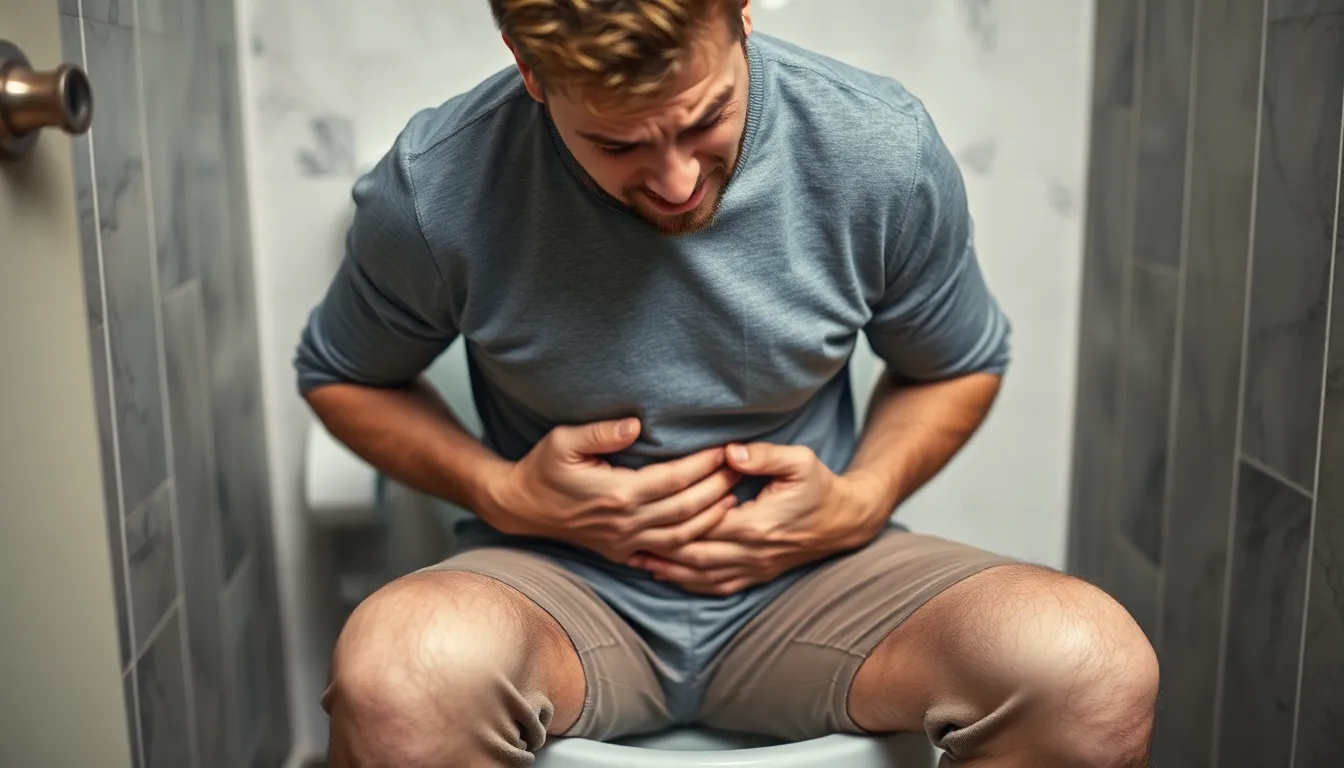When it comes to the discomfort of hemorrhoids, many people might feel like they’re sitting on a ticking time bomb. The good news? Hemorrhoids often heal on their own, like that embarrassing moment from last week that you can’t seem to forget. With a little patience and some simple lifestyle tweaks, relief can be just around the corner.
Imagine a world where you can sit comfortably again, free from the nagging itch and discomfort. It’s possible! Understanding how hemorrhoids work can help demystify this common issue. So, let’s dive into the fascinating journey of these pesky little nuisances and explore how they often resolve themselves, leaving you with a smile (and a much more comfortable rear).
Table of Contents
ToggleUnderstanding Hemorrhoids
Hemorrhoids are swollen veins in the lower rectum and anus. Causes include prolonged sitting, straining during bowel movements, and even pregnancy. Symptoms often consist of pain, discomfort, itching, and bleeding during bowel movements. Many people experience these issues at some point in their lives.
Several types of hemorrhoids exist. Internal hemorrhoids occur inside the rectum and typically remain painless. External hemorrhoids develop under the skin around the anus and can be quite painful when swollen. It’s important to identify the type to manage symptoms effectively.
Many cases resolve independently, often within a few days. Lifestyle adjustments can enhance recovery. Maintaining a high-fiber diet, drinking plenty of water, and engaging in regular physical activity can improve overall digestive health. Such changes reduce straining during bowel movements, which aids in preventing flare-ups.
If symptoms persist beyond a week or worsen, medical consultation is advisable. Healthcare providers may recommend over-the-counter treatments, such as creams or suppositories, to alleviate discomfort. Surgical options exist for chronic or severe cases.
Awareness of the symptoms and understanding the conditions leading to hemorrhoids can promote early intervention. Those experiencing discomfort should remember that effective management strategies exist. Embracing lifestyle changes often leads to significant improvements in symptoms and overall well-being.
Symptoms of Hemorrhoids

Hemorrhoids exhibit various symptoms that can vary in intensity. Identifying these symptoms aids in seeking timely relief.
Common Symptoms
Discomfort often accompanies hemorrhoids. Pain might occur during bowel movements, leading to straining. Bleeding, visible on toilet paper or in the stool, serves as a prominent indicator. Itching around the anal area frequently signals irritation. Swelling near the anus may also indicate the presence of hemorrhoids. These common symptoms often make daily activities uncomfortable, prompting individuals to consider adjustments in their lifestyle.
Severe Symptoms
Severe symptoms indicate a potential worsening of the condition. Intense pain, particularly when sitting or during bowel movements, may arise. Significant bleeding, which may herald a more serious issue, necessitates immediate attention. Prolapsed hemorrhoids could occur, wherein the swollen vein protrudes through the anus. Symptoms like these warrant urgent medical evaluation to prevent complications. Individuals experiencing such symptoms should consult a healthcare professional for appropriate guidance and treatment options.
Treatment Options
Treatment options for hemorrhoids vary from home remedies to medical interventions, allowing individuals to choose based on their symptoms and preferences.
Home Remedies
Home remedies often provide effective relief from mild hemorrhoid symptoms. Increasing fiber intake improves bowel regularity and reduces straining during bowel movements; fruits, vegetables, and whole grains serve as excellent sources. Drinking plenty of water aids in softening stools and preventing dehydration. Warm sitz baths promote blood flow to the affected area, easing discomfort and reducing swelling. Applying over-the-counter topical treatments with witch hazel or hydrocortisone can alleviate itching and inflammation. Regular exercise enhances circulation and overall digestive health, which helps prevent future occurrences.
Medical Treatments
Medical treatments become necessary when symptoms persist or worsen despite home remedies. Healthcare providers commonly recommend over-the-counter medications to manage pain and inflammation. For persistent cases, rubber band ligation obstructs blood flow to hemorrhoids, causing them to shrink. Sclerotherapy involves injecting a solution to reduce hemorrhoid size, proving effective in many cases. In severe instances, surgical options like hemorrhoidectomy remove problematic hemorrhoids entirely. Consulting a healthcare professional guides patients in choosing the most appropriate treatment based on individual circumstances.
Do Hemorrhoids Heal on Their Own?
Hemorrhoids often resolve independently without medical intervention. Most cases improve within a few days, especially with proper care. Pain and discomfort may linger, but patience combined with lifestyle adjustments significantly aids recovery. Maintaining a high-fiber diet helps soften stools and reduces straining. Staying hydrated encourages regular bowel movements, which eases pressure on swollen veins.
Individuals experiencing mild symptoms can find relief through home remedies. Warm sitz baths soothe irritation and promote blood flow to the affected area. Over-the-counter topical treatments can alleviate pain and itching, providing more immediate comfort.
It’s essential to recognize when symptoms change. If severe pain or significant bleeding occurs, those signs may indicate a need for medical evaluation. Prolapsed hemorrhoids, which occur when internal hemorrhoids swell and protrude, require prompt attention. A healthcare professional can recommend effective treatments tailored to individual needs, ranging from non-invasive options to surgical interventions.
Awareness of personal symptoms assists in determining the best course of action. Early intervention makes a substantial difference in healing time and overall relief. Common lifestyle changes, such as regular exercise, enhance both circulation and digestive health, reinforcing the body’s natural healing processes. By combining these strategies, people can significantly reduce their discomfort and speed their recovery from hemorrhoids.
Hemorrhoids can be a frustrating experience but understanding that they often heal on their own provides reassurance. With the right lifestyle adjustments and a bit of patience, individuals can find relief from discomfort. Recognizing symptoms and making proactive changes can significantly enhance recovery and overall well-being.
For those facing persistent issues or severe symptoms, seeking medical guidance is crucial. By staying informed and attentive to their bodies, individuals can navigate the challenges of hemorrhoids effectively. Embracing a healthier lifestyle not only aids in recovery but also promotes long-term digestive health.





